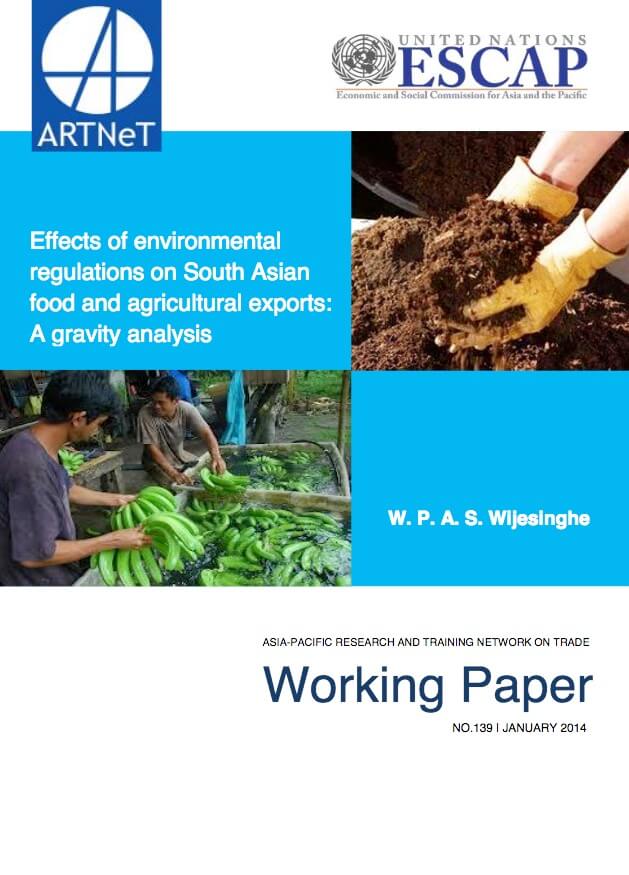Effects of environmental regulations on South Asian food and agricultural exports: A gravity analysis

Regardless of the occasional dissenting voices, free trade is now being embraced by many of the nations of the world. South Asian countries joined the global consensus for frictionless trade by forming regional trade blocs under the banner of the South Asian Association for Regional Cooperation (SAARC). However, intra- and interregional trade in SAARC has not yet reached the desired stage, and a range of empirical studies have therefore been carried out with the objective of determining the causes. This current study is also motivated by the poor performance of the South Asian countries in world trade and it investigates the effects of environmental regulation on the food and agricultural trade of four South Asian nations, i.e., Bangladesh, India, Pakistan and Sri Lanka. For this study, the Gravity Model for international trade analysis was used with country- and time-specific fixed effects followed by Heckman sample selection model to avoid possible biases that are widely cited in the gravity literature. Trade data were retrieved from Trade Map while data for other gravity variables were retrieved from relevant recognized data sources. The Environmental Performance Index (EPI) was utilized as a proxy measure for the environmental regulation of the four SAARC nations and their trade partners to denote environmental regulation of reporting and partner countries. The results of the coefficient estimates revealed that even though there appears to be a relationship between stringent regulations and foreign trade without these specific effects, its significance fades as soon as both the importing and exporting country-specific effects are taken into consideration.
